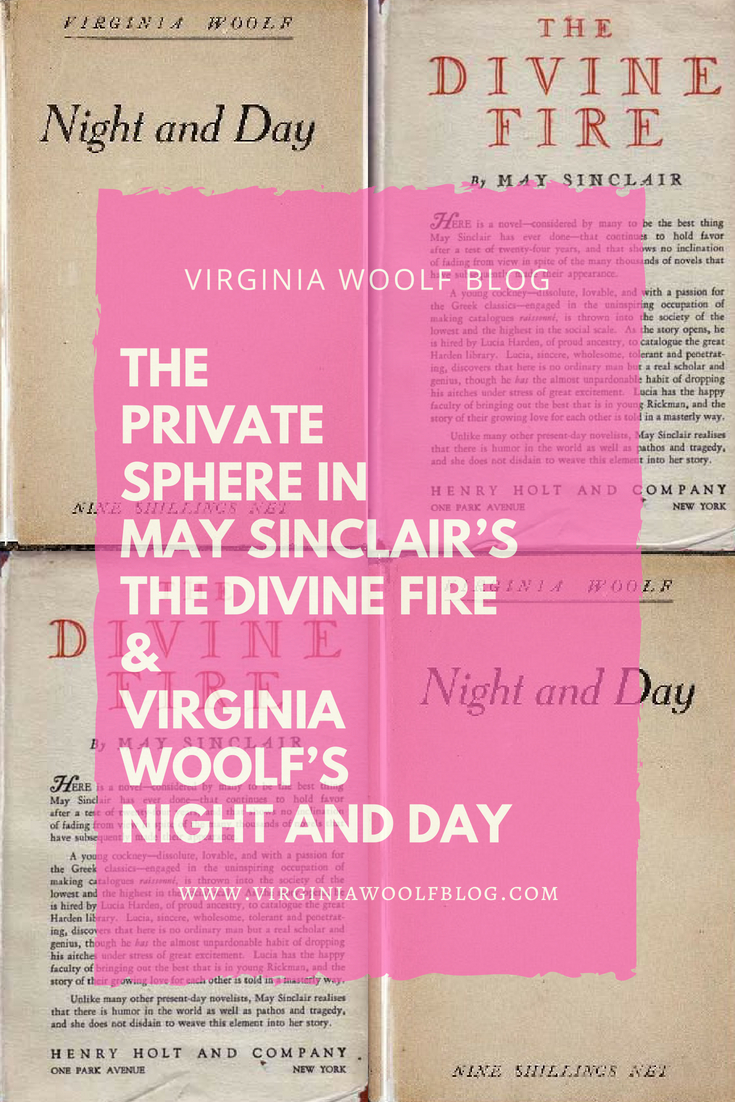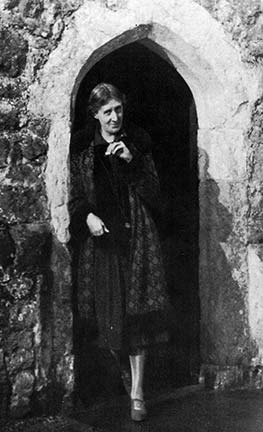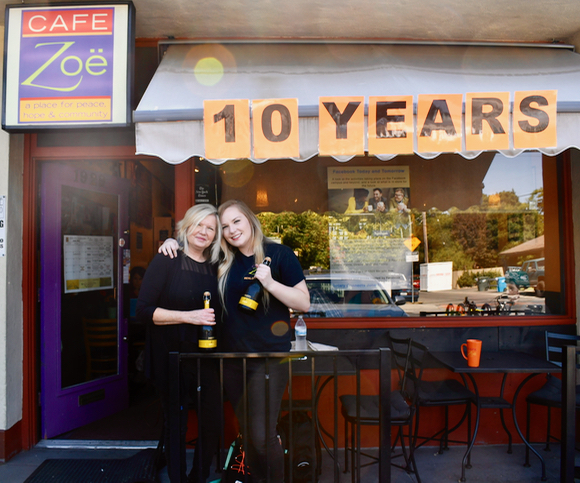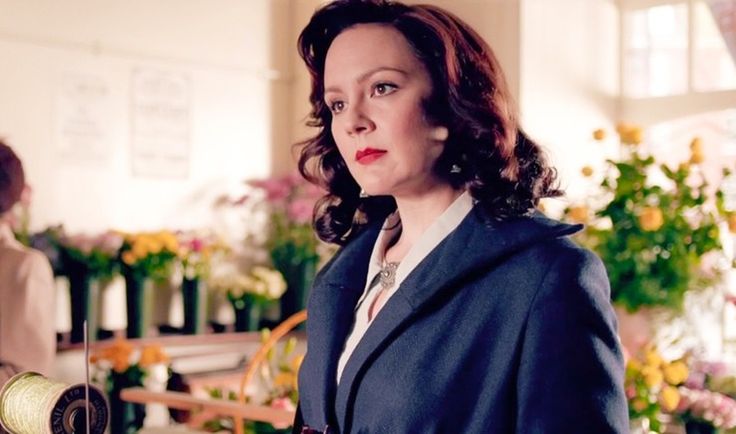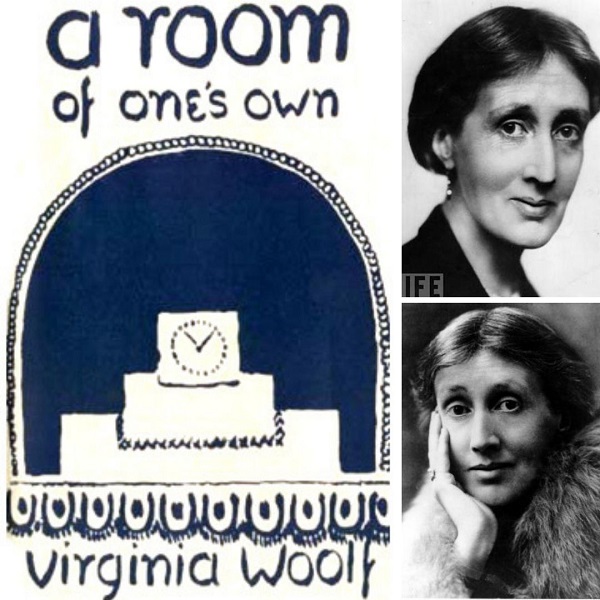
A Room of One’s Own is an extended essay first published on October 24, 1929.
The essay is based on two lectures titled Women and Fiction that Virginia Woolf gave at two women’s colleges, Newnham and Girton College, in October of 1928.
Angry about her own lack of an education and limited personal freedom, Virginia tackles many feminist issues in the text such as women’s lack of access to education as well as their economic and social dependence on men.
In the essay, Virginia argues that in order for women to write fiction “A woman must have money and a room of her own…”
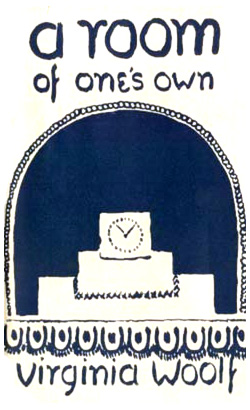
One of Virginia’s most famous quotes “One cannot think well, love well, sleep well, if one has not dined well” also originates from this essay, in a section discussing the low quality food served at women’s colleges, which she wrote after eating an unsatisfactory dinner of beef and prunes during her visit to Newnham college:
“The human frame being what it is, heart, body, and brain all mixed together, and not contained in separate compartments as they will be no doubt in another million years, a good dinner is of importance to good talk. One cannot think well, love well, sleep well, if one has not dined well. The lamp in the spine does not light on beef and prunes.”
Although A Room of One’s Own is unabashedly feminist, according to author and New York Times book reviewer, Mary Gordon, it must be noted that Virginia is not writing about the rights all women, just a certain type of woman:
”A Room of One’s Own opened Woolf up to the charges – snobbery, aestheticism – by that time habitually laid at the Bloomsbury gate by the generation that came of age in the late Twenties. To an extent, the accusations are just: Woolf is concerned with the fate of women of genius, not with that of ordinary women; her plea is that we create a world in which Shakespeare’s sister might survive her gift, not one in which a miner’s wife can have her rights to property; Woolf’s passion is for literature, not for universal justice. The thesis of ‘A Room of One’s Own’ – women must have money and privacy in order to write – is inevitably connected to questions of class: ‘Genius like Shakespeare’s is not born among labouring, uneducated, servile people.’ The words are hard; how infuriating they must have been to, say, a D.H. Lawrence. But Woolf is firm. Genius needs freedom; it cannot flower if it is encumbered by fear, or rancor, or dependency, and without money freedom is impossible.”
Another charge often leveled at Virginia is that her language and style are too challenging for most readers, but according to Virginia’s nephew and biographer, Quentin Bell, A Room of One’s Own is one her more accessible works:
“It is, I think, the easiest of Virginia’s books, by which I mean it puts no great burden on the sensibilities. The whole work is held together, not as in her other works by a thread of feeling, but by a thread of argument – a simple well-stated argument: the disabilities of women are social and economic; the woman writer can only survive despite great difficulties, and despite the prejudice and the economic selfishness of men; and the key to emancipation is to be found in the door of a room which a woman may call her own and which she can inhabit with the same freedom and independence as her brothers. The lack of this economic freedom breeds resentment, the noisy assertive resentment of the male, who insists on claiming his superiority, and the shrill nagging resentment of the female who clamours for her rights. Both produce bad literature, for literature- fiction, that is- demands a comprehensive sympathy which transcends and comprehends the feelings of both sexes. The great artists is Androgynous…This argument is developed easily and conversationally, striking home in some memorable passages but always lightly and amusingly expressed…For in A Room of One’s Own one hears Virginia speaking. In her novels she is thinking. In her critical works one can sometimes hear her voice, but it is always a little formal, a little editorial. In A Room of One’s Own she gets very close to her conversational style.”
It is surprising that A Room of One’s Own was even written at all since Virginia didn’t exactly enjoy her lecture experience at the women’s colleges that fall of 1928 and didn’t think her lectures were particularly impressive, as she stated in her diary on October 27, 1928:
“Thank God, my long toil at the women’s lectures is this moment ended. I am back from speaking at Girton, in floods of rain. Starved but valiant young women – that’s my impression. Intelligent eager, poor, & destined to become schoolmistresses in shoals. I blandly told them to drink wine & have a room of their own…I felt elderly & mature. And nobody respected me. They were very eager, egotistical, or rather not much impressed by age & repute. Very little reverence or that sort of thing about.”
Yet over the course of the next few months, Virginia got the idea to turn the lectures into a book, according to an entry in her diary on November 7th:
“And still this mood hangs about me. I want to write a history, say of Newnham or the womans movement, in the same vein. That vein is deep in me – at least sparkling, urgent.”
Suddenly inspired, Virginia wrote the text feverishly, finishing it that spring and revising it immediately after, as she told her diary on April 13:
“Its not scribbling; its keeping 7 people fed & housed; a great big man like Percy; a carrot faced woman like Cartwright; they live on my words. They will be feeding off Women & Fiction next year for which I predict some sale. It has considerable conviction. I think that the form, half talk half soliloquy allows me to get more on the page than any how else. It made itself up & forced itself upon me (in this form – the thinking had been done & the writing stiffly & unsatisfactory 4 times before) as I lay in bed after Berlin. I used to make it up at such a rate that when I got pen & paper I was like a water bottle turned upside down. The writing was as quick as my hand could write, too quick, for I am now toiling to revise; but this way gives one freedom & lets one leap from back to back of one’s thoughts.”
Virginia completed the revision quickly and set a publication date for October. As she did before the publication of most of her books, Virginia discussed the book in her diary, on October 23, 1929, but did not seem optimistic about its future:
“I will here sum up my impressions before publishing A Room of One’s Own. It is a little ominous that Morgan won’t review it. It makes me suspect that there is a shrill feminine tone in it which my intimate friends will dislike. I forecast, then, that I shall get no criticism, except of the evasive jocular kind from Lytton, Roger & Morgan; that the press will be kind and talk of its charm, & sprightiness; also I shall be attacked for a feminist & hinted at for a sapphist; Sibyl will ask me to luncheon, I shall get a good many letters from young women. I am afraid it will not be taken seriously. Mrs Woolf is so accomplished a writer that all she says makes easy reading…this very feminine logic…a book to be put in the hands of girls. I doubt that I mind very much. The Moths; but it think it is to be waves, is trudging along; & I have that to refer to, if I am damped by the other. It is a trifle, I shall say, so it is, but I wrote it will ardour & conviction.”
The book, much to Virginia’s surprise, sold very well and did in fact generate many letters from young women. Virginia was pleased yet she was so engrossed in writing The Waves at the time she barely spared a moment to celebrate.
The rest of her diary entries that year are filled with talk of The Waves. The last mention Virginia makes of A Room of One’s Own that year is in a letter to G. Lowes Dickinson in which she explains why she wrote the book in the first place: “I wanted to encourage the young women—they seem to get fearfully depressed.”
A Room of One’s Own is now considered one of Virginia Woolf’s best books.
Sources:
New York Times; Virginia Woolf Discusses Women and Fiction; Louis Kronenberger; November 10 1929: http://www.nytimes.com/books/00/12/17/specials/woolf-room.html
New York Times; The Fate of Women Genius; Mary Gordon; September 1981:http://www.nytimes.com/books/98/03/08/home/gordon-fate.html
“Virginia Woolf: A Biography”; Quentin Bell; 1972
“The Diary of Virginia Woolf; Volume Three 1925-1930”; Virginia Woolf

